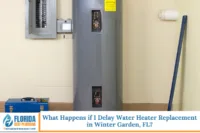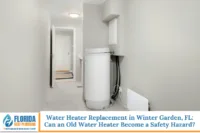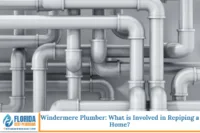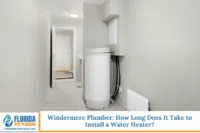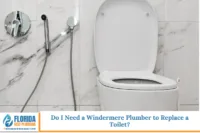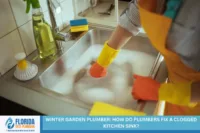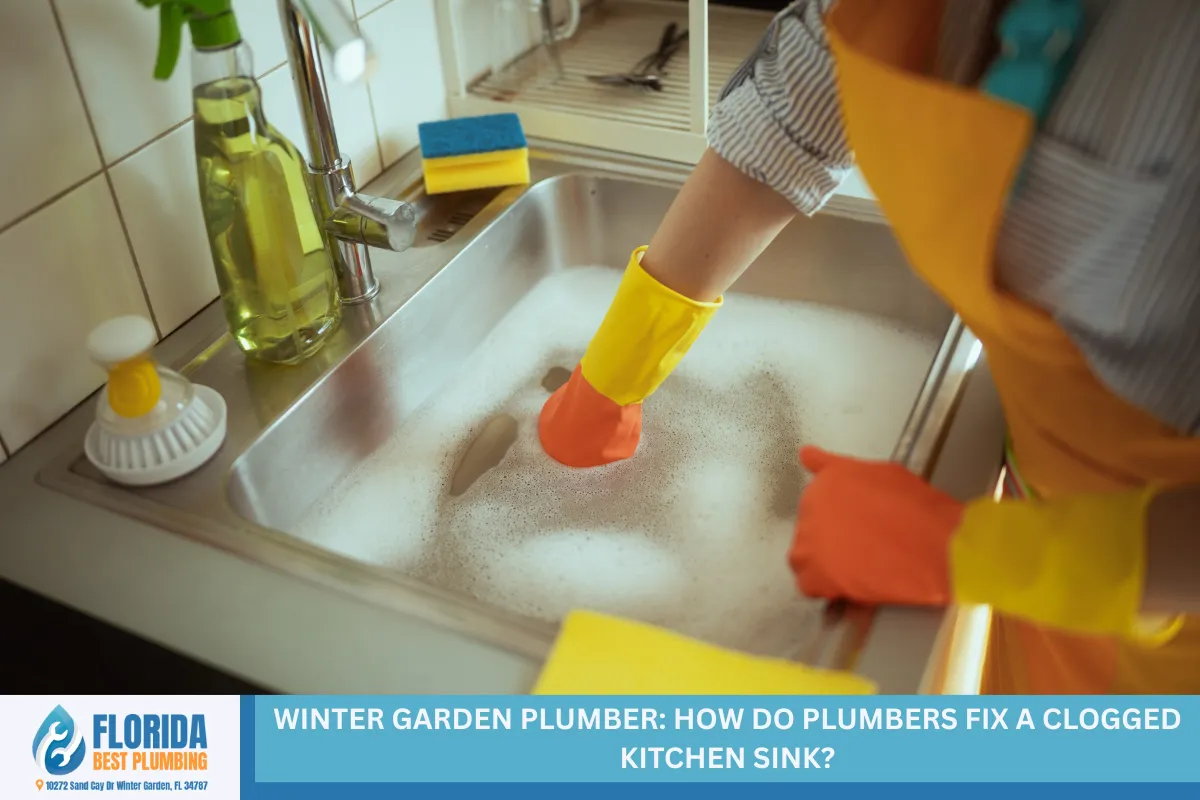
If you need a plumber in Winter Garden because your kitchen sink is clogged, you’re not alone. A clogged kitchen sink can quickly turn meal prep into a nightmare. Standing water, slow-draining sinks, and foul odors make your kitchen unpleasant, and if left untreated, a clog can even result in water damage or burst pipes. It’s frustrating when simple home remedies don’t work, and you may be worried about expensive repairs or bigger plumbing issues like damaged sewer lines or leaking pipes. But don’t worry—there are effective solutions! Let’s walk through exactly how plumbers fix kitchen sink clogs and what you can do at home before calling a professional.
Common Causes of Kitchen Sink Clogs in Winter Garden
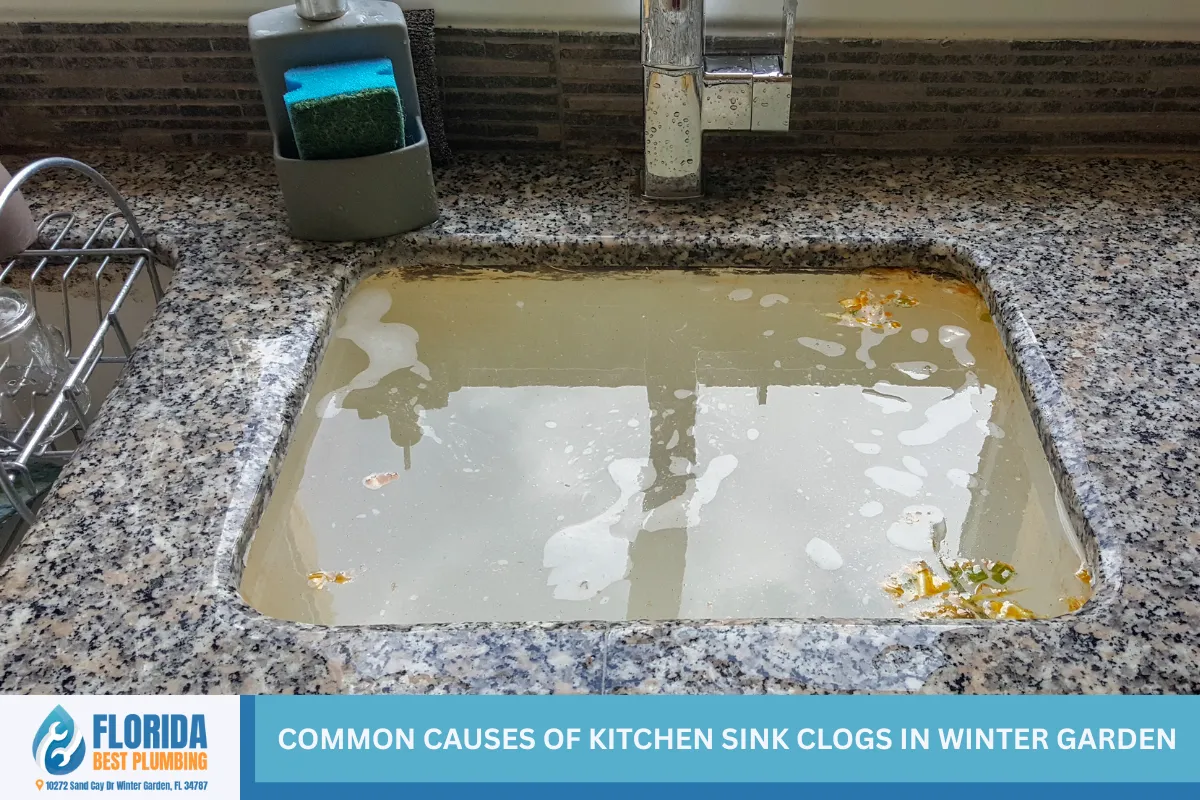
Understanding why your kitchen sink gets clogged is the first step in avoiding future problems. The most common causes include:
- Grease buildup (FOG—Fats, Oils, Grease): Pouring grease down the drain coats your pipes, trapping other debris.
- Food scraps: Items like coffee grounds, pasta, rice, and fibrous veggies (onion skins, celery) expand or tangle in the pipes.
- Soap scum and mineral buildup: Over time, soap and minerals from hard water restrict flow.
- Improper garbage disposal use: Too much, or the wrong type of waste (potato peels, eggshells), can jam or clog a disposal.
- Dishwasher discharge and venting issues: Plumbing or vent problems can slow drainage.
Plumbing systems in Central Florida, including Winter Garden and Orlando, often deal with all these issues, making it vital to use your kitchen sink and disposal properly.
How to Diagnose a Clogged Kitchen Sink
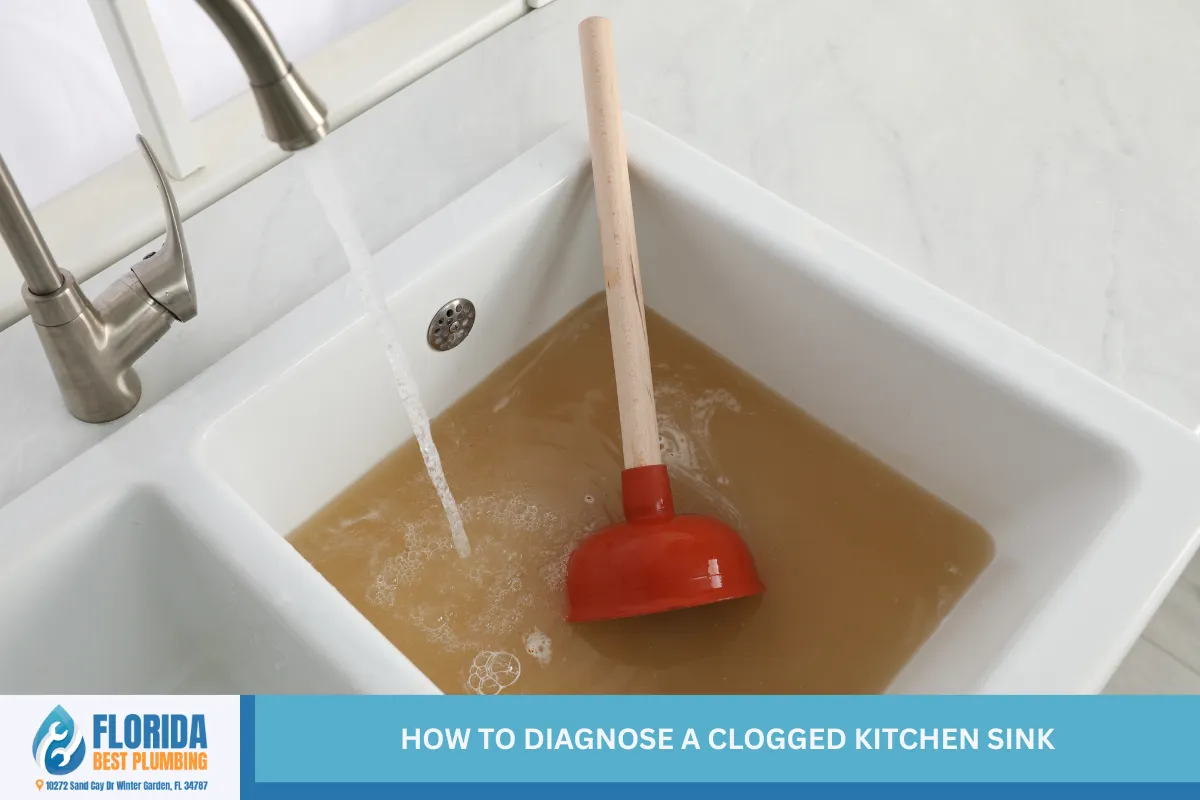
Before you grab a tool, determine where the clog is. Signs of a kitchen sink clog include:
- Standing water in sink: Water won’t drain at all.
- Slow-draining sink: Water pools or drains sluggishly.
- Foul odors: Rotting food or grease in the pipes can smell.
- Kitchen sink clogged on both sides: On double sinks, both bowls are full or slow, indicating a deeper blockage.
- Gurgling or bubbling: This may signal air trapped by a clog downstream.
If water returns after draining or clogs seem to keep coming back, you might have an issue past the P-trap or in the main drain line. Persistent problems may mean it’s time to call a licensed plumber.
Tools Used by Plumbers to Unclog Kitchen Sinks
Most home kitchen sink blockages can be resolved with basic tools. Plumbers rely on several:
- Cup or flat plunger: For sinks (not toilets), creates suction to move clogs.
- Drain snake/plumbing snake/auger: A Flexible tool to reach and dislodge blockages farther down the pipe.
- Wet/dry vacuum: Powerful suction can dislodge stubborn clogs.
- Channel-locks / slip-joint pliers: For opening pipe fittings.
- Bucket, towels, rags: To catch water and minimize mess.
- Enzyme/bio drain cleaner: Natural cleaners break down organic matter, ideal for septic and safe for pipes.
- Chemical drain cleaner: Caustic and powerful, but use with caution—can harm pipes and septic systems if overused.
- Allen wrench/hex key: For resetting jammed garbage disposals.
- Video camera inspection: For tough or recurring blockages.
Safety gear like gloves, safety goggles, and ventilation is essential, especially with chemical cleaners.
Step-by-Step: How Plumbers Unclog a Kitchen Sink
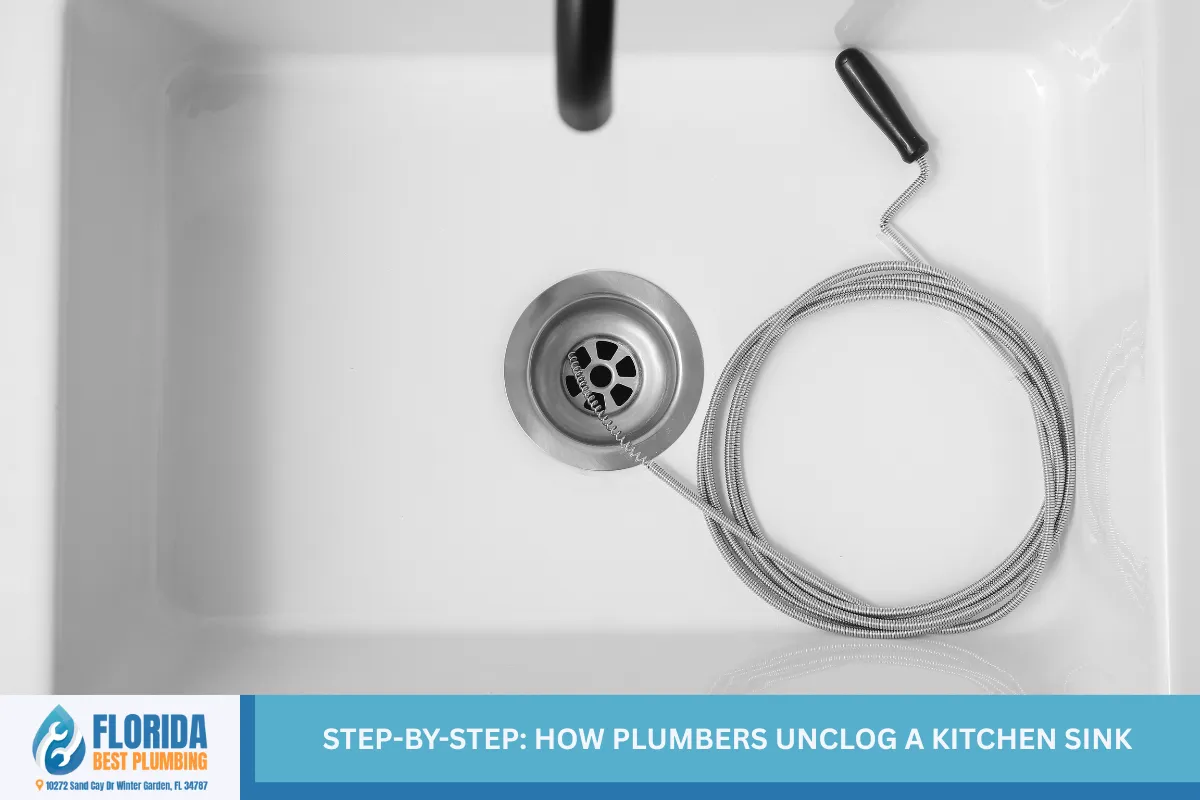
1. Clear and Reset the Garbage Disposal
A clogged kitchen sink with a disposal may need a reset. Here’s what plumbers do:
- Please turn off the power to the disposal at the main shut-off valve or unplug it. Never put your hand inside!
- Check for jammed debris using tongs or pliers.
- Insert an Allen wrench or hex key underneath the turning slot—turn back and forth to free jammed impellers.
- Press the reset button underneath the disposal unit.
If the disposal runs but the water doesn’t drain, the clog is likely in the pipes.
2. Use Boiling Water and Dish Soap
This method helps dissolve grease-based blockages:
- Pour a hearty squirt of dish soap into the drain.
- Carefully pour boiling water (boiling water flush) to soften grease.
- Repeat twice if needed.
Never use boiling water if you have PVC plumbing fixtures, as extreme heat can damage the material.
3. Plunge the Sink
- Use a cup/flat plunger.
- Fill the sink with an inch of water for a tight seal.
- If you have a double bowl sink, plug the second drain with a wet rag.
- Plunge vigorously 10-15 times.
If water still won’t drain, the clog may be farther down the line.
4. Try Baking Soda and Vinegar
A natural fizzing reaction can help break up grime and mild clogs:
- Pour 1 cup of baking soda into the drain.
- Add 1 cup of white vinegar.
- Plug the drain to contain the fizz.
- Wait 15 minutes, then flush with hot water.
- For added punch, mix baking soda and salt before the vinegar.
Do not mix with chemical drain cleaner, as this can be dangerous.
5. Clean the P-Trap
If plunging and natural remedies don’t help, plumbers will remove and clean the P-trap (the curved U-bend under the sink):
- Place a bucket and towels under the trap.
- Unscrew the slip-joint nuts with channel locks.
- Remove the trap and clean out sludge, food, or silverware.
- Reassemble, ensuring gaskets and O-rings are well placed.
6. Use a Drain Snake or Auger
If there’s still a blockage:
- Insert the snake into the trap arm (horizontal pipe) or cleanout port.
- Turn the handle to push and spin through the clog.
- When resistance lessens, pull back and dispose of debris.
- For severe clogs, a drum auger (hand-crank or power) may be needed.
7. Wet/Dry Vacuum Trick
- Turn to suction mode.
- Make a tight seal over the drain with a wet rag.
- Blast suction for ten seconds.
- Some pros use “blow” mode to force air through the clog from the drain opening or cleanout.
8. Professional Steps: Hydro Jetting & Camera Inspection
If the clog is deep in the main drain line or near the sewer cleanout, a plumber might use:
- Hydro jetting: A high-pressure water stream that blasts away blockages and mineral buildup.
- Video camera inspection: Diagnoses the precise clog location or checks for pipe damage.
Safety Tips and What Not to Do
- Never put your hand inside a running or jammed garbage disposal. Always turn off the power first.
- Don’t overuse chemical drain cleaners. Caustic chemicals can corrode pipes and harm septic tanks.
- Avoid mixing different cleaners (especially with vinegar). Dangerous fumes can result.
- Protect countertops and finishes. Leaks or spills can cause water damage.
If you spot water leaks after reassembling pipes, don’t ignore them—fix any loose slip nuts, check gaskets, and retest.
When to Call a Professional Plumber
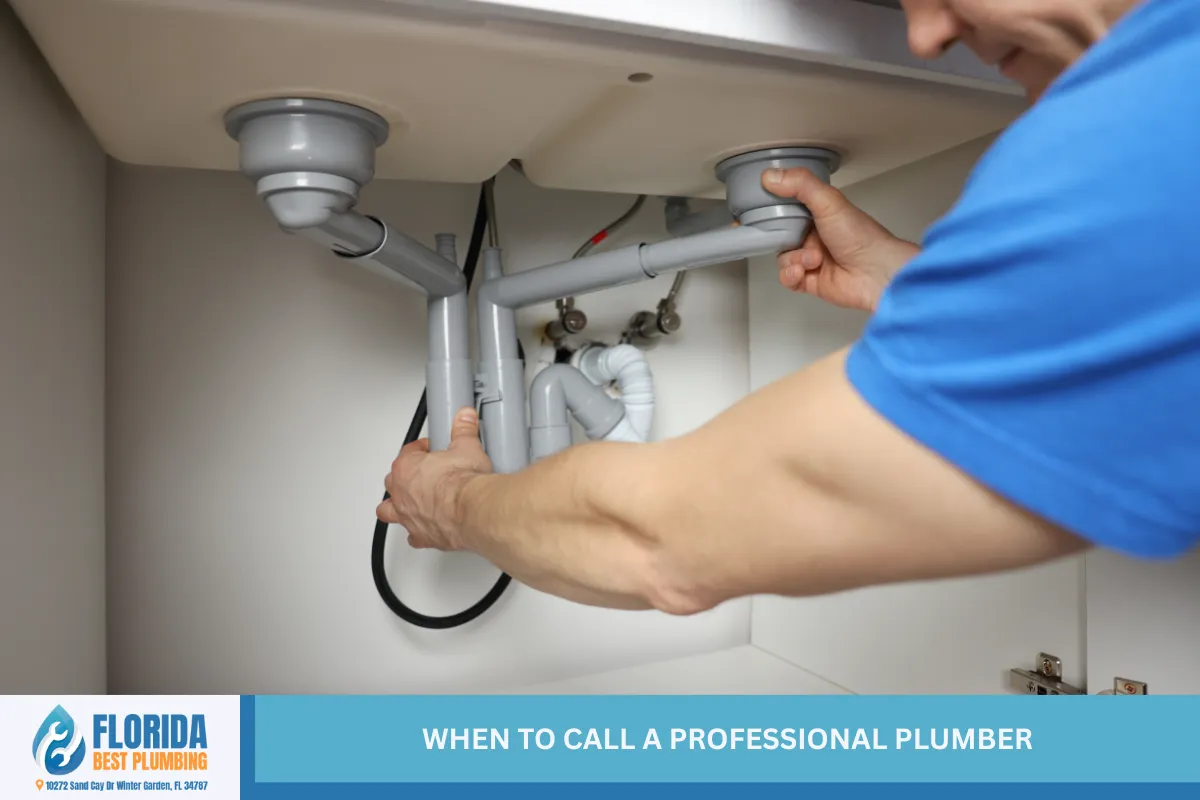
Certain situations require professional intervention:
- Multiple fixtures are clogged: If more than the kitchen sink is slow or backing up, you may have a larger main line or sewer line problem.
- Frequent or stubborn clogs: Repeated blocked pipes mean there could be structural issues, collapsed pipes, or excessive mineral scale.
- Kitchen sink repair after DIY doesn’t work, or if standing water persists.
- Signs of water leak, leaky faucets, water damage, or water cleanup needed: Act quickly to avoid a water damage catastrophe.
- Frozen pipes, burst pipes, gas leaks, or water heater troubles.
Experienced plumbers in Winter Garden provide emergency drain unclogging services, leak repair, and kitchen sink repair 24/7 for urgent plumbing needs.
Cost to Unclog a Kitchen Sink in Winter Garden
- DIY methods: Just the cost of supplies—baking soda, vinegar, plunger, snake, or drain cleaners.
- Standard plumbing service: Expect to pay $125-$300 for a basic kitchen sink clog if there’s no major damage. Prices rise for deeper blockages or drain cleaning that involves hydro jetting, camera inspections, or trenchless pipe repair.
- Emergency plumbers: Higher rates for nights/weekends or emergency plumbing services.
- Large repairs: Sewer line replacements, main drain line issues, or sump pumps can cost much more.
Always get an estimate and ask about customer service and experience, especially if you need professional drain cleaning services or main line repairs in Central Florida.
Preventing Future Kitchen Sink Clogs
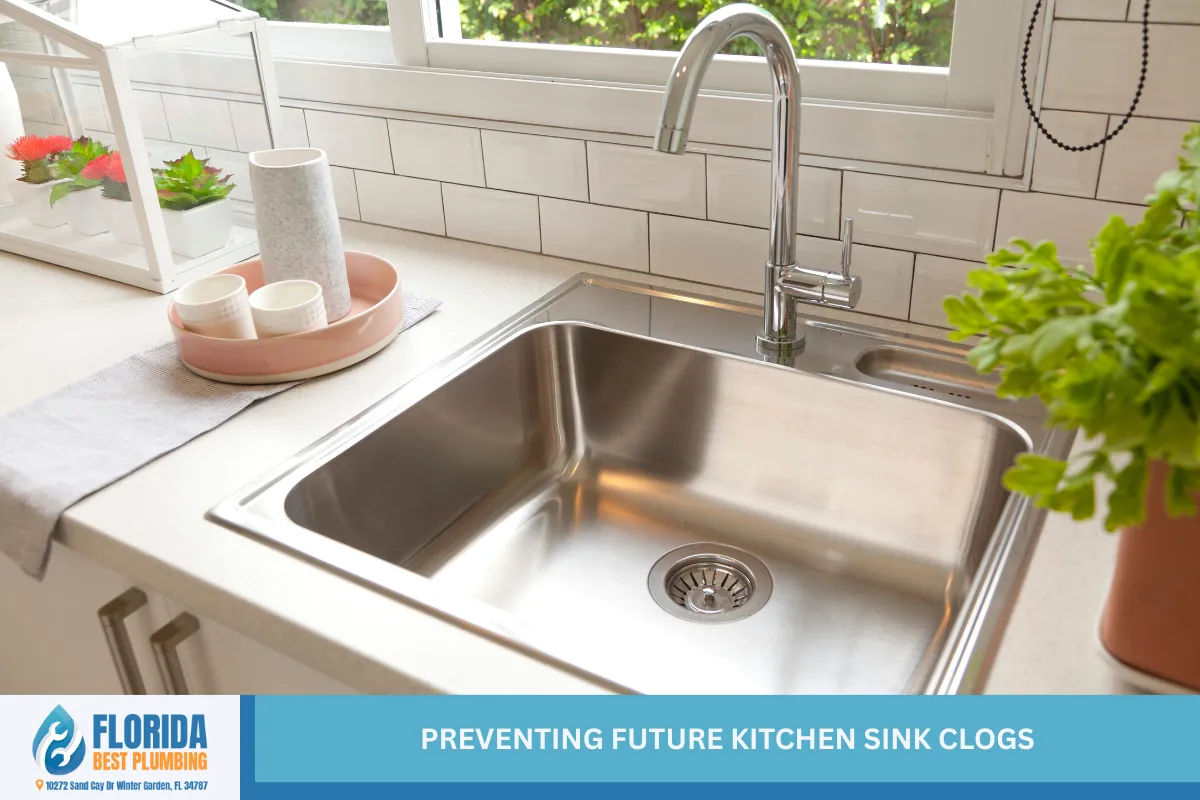
Keep your kitchen sink working smoothly by following these tips:
- Don’t dump grease down the drain—let it harden, then trash it.
- Compost food scraps instead of using the disposal for everything.
- Run plenty of cold water when using the disposal.
- Avoid putting coffee grounds, eggshells, potato peels, and fibrous foods down the drain.
- Regularly clean the P-trap and strainer.
- Use enzyme drain cleaners once a month to keep pipes clear.
- Fix leaky faucets and plumbing fixtures promptly to maintain water pressure and water supply efficiency.
These rules help prevent plumbing emergencies, expensive water bills, and the need for constant drain unclogging services.
Why Choose a Licensed Plumber in Winter Garden?
Calling a professional plumber in Winter Garden means:
- Trained to handle plumbing emergencies: From clogged drains to water heater or gas leaks.
- Access to professional-grade equipment: Such as power augers, hydro jetting, and camera inspections.
- Warrantied repairs and great customer service.
- Knowledge of local plumbing codes and building materials (like PVC).
- Prevent bigger problems: Emergency plumbers handle leaking pipes, frozen pipe events, and water cleanup quickly.
If you have a clogged kitchen sink, a plumber in Central Florida can keep your home safe, sanitary, and running smoothly.
Winter Garden Plumber – Florida Best Plumbing LLC
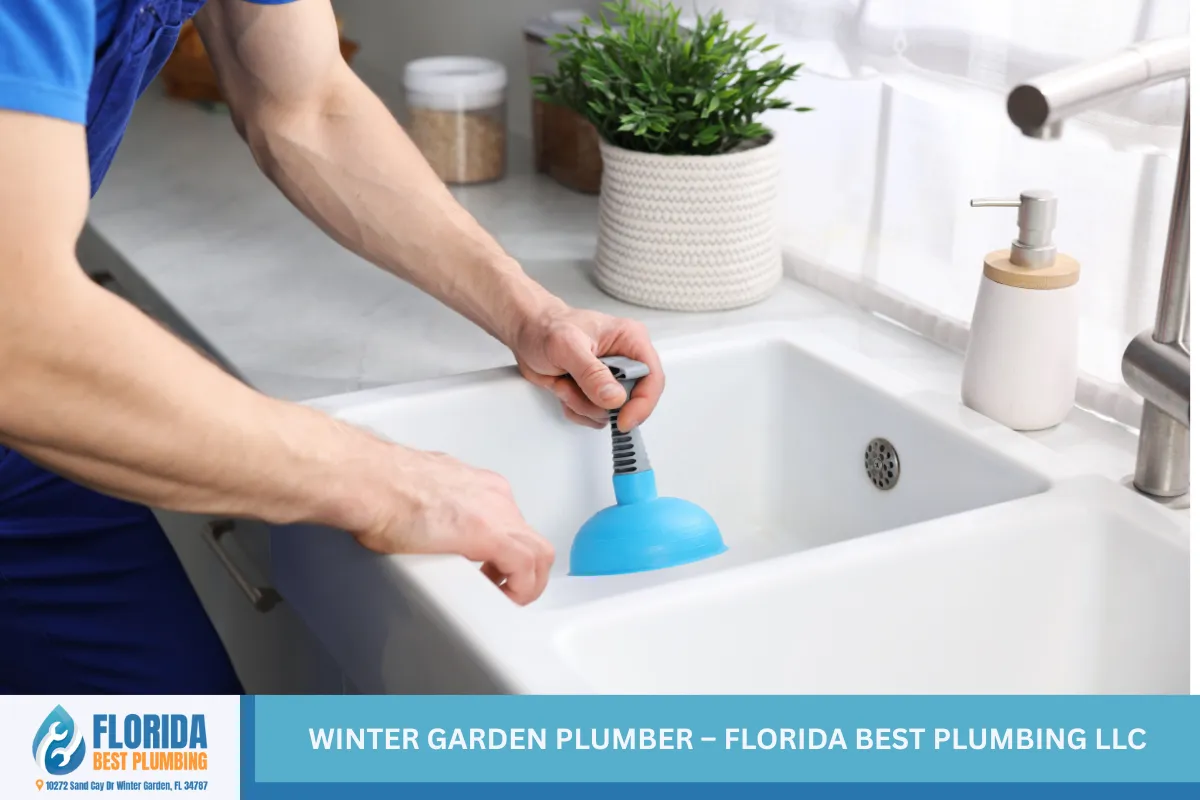
Struggling with a stubborn, clogged kitchen sink in Winter Garden? Trust Florida Best Plumbing LLC, your local expert plumber, to restore your kitchen’s flow—fast. Our skilled technicians use state-of-the-art tools and proven methods to tackle everything from grease buildup to tough, deep blockages. Whether it’s a minor clog or requires advanced drain cleaning and hydro jetting, we provide reliable solutions and upfront pricing.
Call us today at (407) 683-6644 to schedule a consultation and experience the area’s most trusted plumbing service!
FAQ: Your Most Asked Questions About Kitchen Sink Clogs
1. Why does my kitchen sink drain clog so often?
Frequently clogged kitchen sinks typically result from improper use of the garbage disposal or repeated disposal of grease, FOG, and food debris. Over time, even small scraps, soap scum, and mineral buildup can accumulate, especially in homes with hard water. To minimize clogs, always scrape plates before rinsing, run hot water after disposal use, and avoid pouring grease or coffee grounds down the drain. Regularly cleaning your P-trap and using enzyme drain cleaners monthly can also help keep your pipes flowing smoothly, reducing the chance of recurring blockages.
2. Is it safe to use chemical drain cleaners on my kitchen sink?
Chemical drain cleaners, also called caustic or lye-based cleaners, can be a quick fix for mild kitchen sink clogs. However, use them sparingly and never together with other chemicals or natural cleaners like vinegar—dangerous reactions can occur. Chemical drain cleaners can damage older pipes, septic systems, and even PVC. Always use gloves and ventilate the area, pouring carefully to avoid splash-back. For tougher or repeated clogs, it’s better to call a professional instead of risking pipe corrosion or safety hazards.
3. How do I unclog a double-bowl kitchen sink with standing water?
If both sides of your double-bowl kitchen sink won’t drain, start by removing as much standing water as you can with a cup. Block one drain with a wet cloth or stopper while you attempt to plunge the other drain with a flat plunger. If plunging fails, try removing and cleaning the P-trap beneath the sink. Stubborn clogs beyond the trap arm may require a drain snake. If the blockage is past the P-trap, or if water backs up into other fixtures, call a professional plumber in Winter Garden for drain cleaning.
4. What is hydro jetting, and when is it needed for my kitchen drain?
Hydro jetting is a professional drain cleaning method using high-pressure water to blast away grease, sludge, mineral buildup, and even roots. Winter Garden plumbers usually turn to hydro jetting for stubborn blockages that resist snaking, especially in main drain lines or sewer lines. It’s highly effective for recurring or tough clogs, cleaning pipes thoroughly without chemicals. However, hydro jetting should only be performed by experienced plumbers to avoid pipe damage, and a camera inspection may be done first to ensure the pipes are up to the task.
5. Can a clogged kitchen sink cause water damage?
Absolutely. A clogged kitchen sink can quickly lead to water backing up, overflowing onto cabinets and floors. Left unchecked, this moisture may seep into nearby fixtures, cause wood rot, or even foster mold growth. In extreme cases, if the clog causes leaks in pipes or plumbing fixtures, water can travel to other areas of the house, creating a water damage catastrophe that’s expensive to fix. This is why it’s important to address clogs promptly, perform regular maintenance, and call a plumber for recurring or severe plumbing issues.
Read more: Winter Garden Plumber: Why is My Toilet Constantly Running?
What Happens if I Delay Water Heater Replacement in Winter Garden, FL?
Water Heater Replacement in Winter Garden, FL [...]
Water Heater Replacement in Winter Garden, FL: Can an Old Water Heater Become a Safety Hazard?
Why Aging Water Heaters Are More Than [...]
Windermere Plumber: What is Involved in Repiping a Home?
A Fresh Start: Why Repiping Matters for [...]
Windermere Plumber: How Long Does It Take to Install a Water Heater?
Uncovering the Truth About Water Heater Installation [...]
Do I Need a Windermere Plumber to Replace a Toilet?
Why Hiring a Windermere Plumber Matters for [...]
Winter Garden Plumber: How Do Plumbers Fix a Clogged Kitchen Sink?
If you need a plumber in Winter [...]


